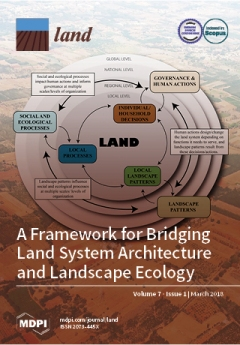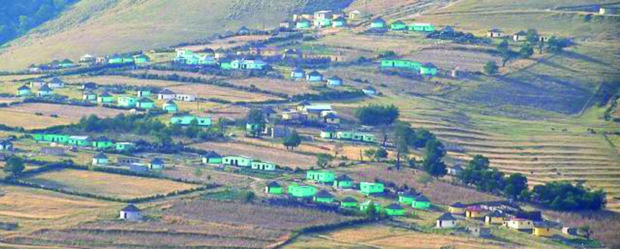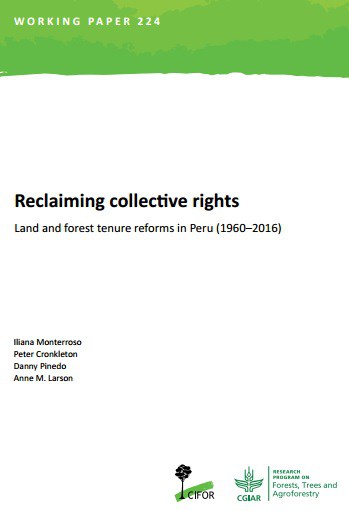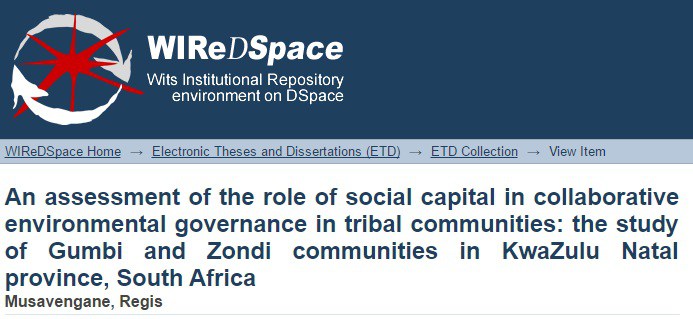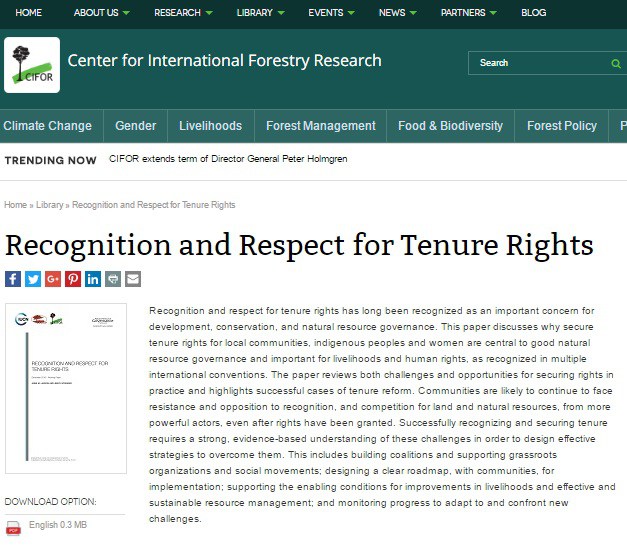Chiefs in a Democracy: A Case Study of the ‘New’ Systems of Regulating Firewood Harvesting in Post-Apartheid South Africa
Much of the international commons literature reveals a decreased functioning of local traditional institutions that regulate natural resource harvesting. In South Africa, it is believed that the creation of new democratic structures at the end of Apartheid has contributed significantly to the deterioration in traditional resource regulation and this in turn has led to the extensive resource degradation seen in parts of the country. Many of these assertions, though, remain anecdotal in nature.

